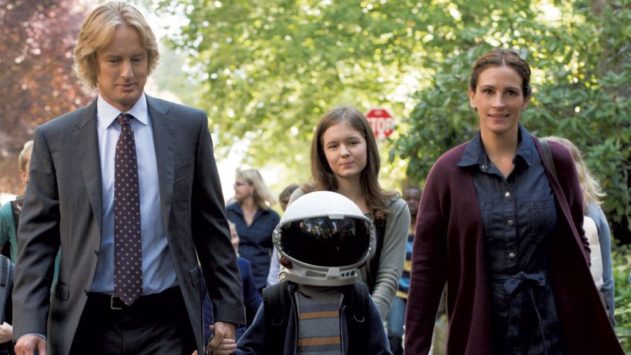Few people want to hear about the reality of disability — and even fewer people want to watch disabled people lead challenging, nuanced lives.
When The Shape of Water won the Oscar for Best Picture, some people said it was progress. How wonderful that the best film of the year featured a main character who is mute. And it would be tempting to believe that movies like this are progress if I wasn’t disabled myself.
I was born without fingers on my right hand and a genetic disease that took a few decades to be diagnosed. This has given me the dubious honor of having both visible and invisible disabilities. I’m blessed to be able to witness people’s reactions when they reach out to shake my missing fingers for the first time and when they assume I’m just too lazy to walk a few blocks.
If I hadn’t had these experiences, I might be inspired by the success of films like The Shape of Water and Wonder that bring the lives of disabled characters to life. But I know better because I’ve long since accepted that the only disabilities that matter to abled people are the ones that inspire them — from a distance.
When I was a little girl, my mother used to tell me about people like TV newscaster Bree Walker and pitcher Jim Abbott, who were also born with only one hand. I know she had good intentions but those stories always left me feeling deflated, even if I couldn’t yet explain why. I squirmed in my seat as I listened to her wax poetic about their success, with the reminder that I could be anything I wanted to be. Just like them.
It took me decades to understand what made me so uncomfortable all those years ago. Decades in which co-workers exclaimed over my fast typing speed and acquaintances told me how inspiring I was. Decades in which my then-husband reminded me how he’d never wanted to marry a woman with health problems.
Through the years, I’ve come to understand my place — what other, abled people need from me. My place is never about the realities of my experience as a disabled woman and mother. And it’s certainly not about being whatever I want to be.
That disabled people can be anything we want to be is a nice idea but it’s about as realistic as Santa Claus. No matter how successful I may be, I still begin every professional introduction with a look of confusion at my fingerless right hand. I can achieve many things, but I’ll never be viewed as normal or whole.
Fictional disabled people have these experiences, of course. These moments are their bread and butter, used to alternatively cast them as inspiring and tragic. But these moments are portrayed as blips on the radar, stumbling blocks on the way to vindication, not defining features of their lives. There is always the promise of a life lived without difference.
It would be nice if that was true, but it’s the disability equivalent of “I don’t see color.” You see color and you see my missing right hand.
For many years, I told people with sincerity that my disability didn’t matter. Back then, I still believed that disability referred to my abilities. Now I know that disability is a status I’m given — and I have as little control over that narrative as I have over my genes. I am not disabled by my fingers or my genes. I am disabled by you.
Here’s a secret: No matter what I achieve, I’m still the girl with one hand. Last week, I watched a prospective employer stare at my right hand and then ask me if I’m able to type. I’ve made my career as a writer and editor for nearly two decades, but a prospective employer still isn’t sure I’m able to put words to paper.
No one makes movies about that. And why would they? You’d have to be disabled to write these stories, and you’d need someone to believe in them enough to finance them. Then you’d need disabled actors to play these roles authentically, and you’d need abled people to go see a movie that digs into the reality of disability. Or even more outlandishly, you’d need abled audiences to believe that disabled actors can be romantic leads in movies that have nothing to do with disability…because, as it turns out, most of our stories can be told without focusing on our disabilities at all.
Few people want to hear about the reality of disability — and even fewer people want to watch disabled people lead challenging, nuanced lives. So what we’re left with is abled people telling stories they’ve ascribed to us and having the gall to tell us they’re doing us a favor.
But that’s not representation. It’s consumption.
Jody Allard is a former techie-turned-freelance-writer living in Seattle. She can be reached through her website, on Twitter or via her Facebook page.

